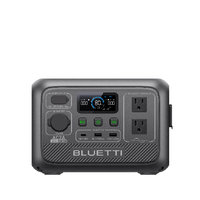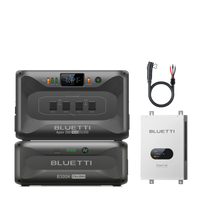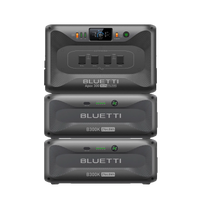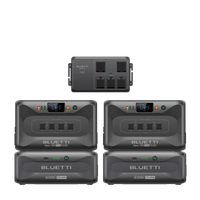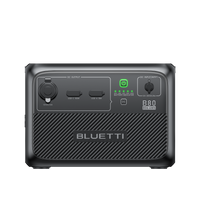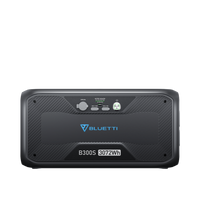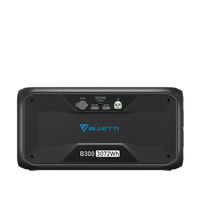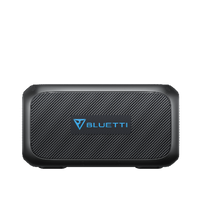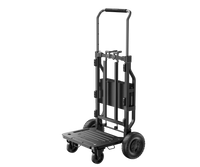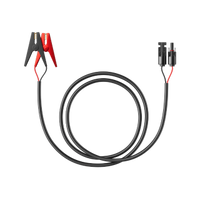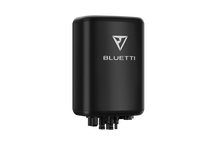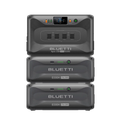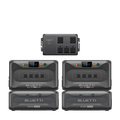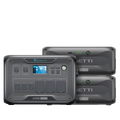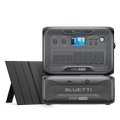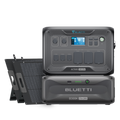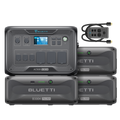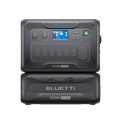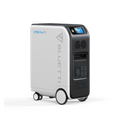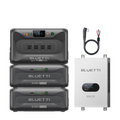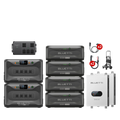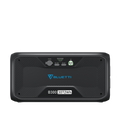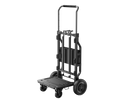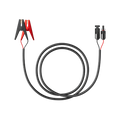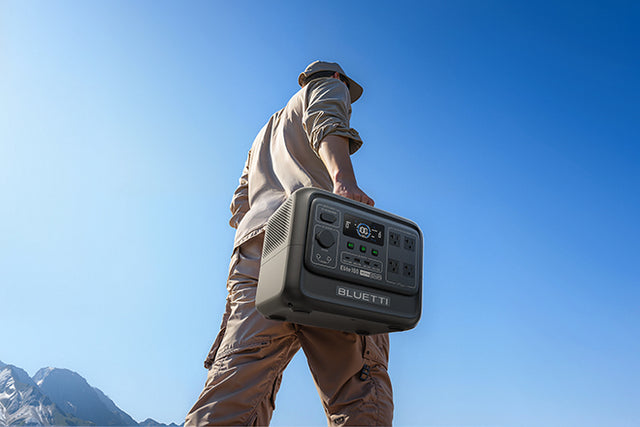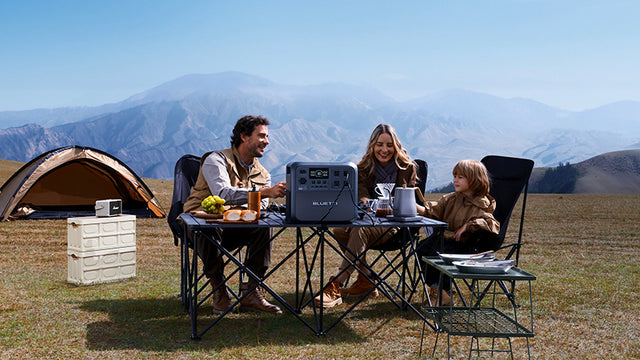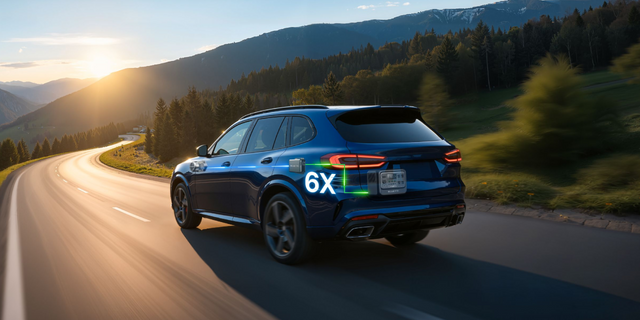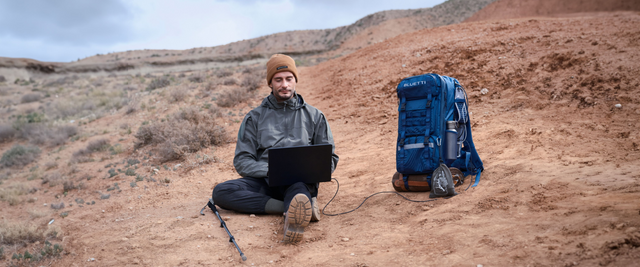Your cart is empty
Shop our productsIn recent years, more travelers have been swapping crowded campgrounds for remote forest clearings, desert plateaus, and quiet mountain lakesides. With that shift, one trend has really taken off: the solar-powered camper trailer. People are realizing that with the right setup, you don't have to depend on noisy gas generators or constant hookups at busy RV parks. Instead, you can roll into a secluded spot, unfold your awning, and still have power to run your essentials thanks to the sun overhead.
The idea isn't just about saving money, though that's part of it. It's about freedom. It's about being able to spend a week in a peaceful boondocking spot without worrying that you'll lose lights or fridge power after a couple of days. It's also about camping with less noise and fewer fumes, something both you and your neighbors will appreciate. For many RVers, investing in a travel trailer with solar panels is becoming less of a luxury and more of a must-have.
What Is a Solar-Powered Camper Trailer?
At its core, a solar-powered camper trailer is exactly what it sounds like: a travel trailer equipped with solar technology that can capture, store, and distribute energy. While some models now come from the factory with solar pre-installed, others are easily upgraded to suit your energy needs.
The system usually has four main parts:
- Solar panels: These go on the roof or fold out beside the trailer to soak up sunlight.
- Charge controller: Keeps the power flowing safely into your batteries without overcharging them.
- Batteries: Where all that energy is stored until you need it. Nowadays, most people go with lithium (LiFePO₄), which lasts way longer than old-school lead-acid.
- Inverter: Converts the stored energy into regular household power so you can run your coffee maker, laptop, or TV.
Hook it all together, and you've basically got your own tiny power plant on wheels. During the day, you're banking energy, and at night you're living comfortably off what you stored.

Advantages of Solar-Powered Travel
Owning a solar-powered camper trailer opens the door to a whole new style of camping. The benefits are hard to ignore once you've tried it.
1. Independence from Hookups
You're no longer tethered to RV parks or dependent on plugging into shore power. That means you can camp in remote locations—sometimes called boondocking—for as long as your supplies and energy storage last.
2. Quiet Camping
Generators work, sure, but they're loud. Even the "quiet" models have a buzz. Solar is completely silent, which means the loudest thing at night is the crickets, or maybe your partner's snoring.
3. Reduced Fuel Costs
Generators eat up gasoline or propane. Solar, on the other hand, is free once you've invested in the equipment. That adds up to big savings over long trips. A 350W solar system can generate 1.4-1.75 kWh daily in sunny conditions, covering a 12V fridge (120W) and lights (20W) for 10 hours.
4. Lower Environmental Impact
No fumes, less fuel burned, and a smaller carbon footprint. For people who care about preserving the wild spaces they love to visit, this is a big plus. Solar camping can reduce CO2 emissions by 0.5-1 ton per year compared to generator use, equivalent to planting 10-20 trees (EPA estimates).
Put simply, with a solar setup, you're camping on your own terms.
Key Features to Consider
Not every travel trailer with solar panels is created equal. If you're shopping for one or upgrading the rig you already own, here are a few things to keep an eye on:
- Panel wattage: A single 100-watt panel looks good in brochures but won't run much more than lights. Look for trailers with multiple panels or the ability to expand.
- Battery bank: Bigger isn't always better, but you do want enough storage to last through cloudy days. Lithium batteries are the gold standard right now.
- Inverter size: If you want to run appliances like microwaves or blenders, you'll need an inverter that can handle higher wattage (2,000+).
- Roof space and portability: Some rigs have enough real estate on the roof for big setups, others don't. Portable folding panels can make up the difference.
The "right" setup is less about having the biggest system and more about matching your gear to how you camp. Weekend warriors don't need what full-timers do.

Best Boondocking Travel Trailers
If you're wondering which rigs stand out as the best boondocking travel trailers, there are several models already designed with solar in mind. According to resources like Camping World and Roadtrippers, these are a few worth keeping on your radar:
|
Trailer Model |
Weight (lbs) |
Solar Capacity (W) |
Inverter (W) |
Price Range ($) |
|
Airstream Basecamp 20X |
~3,500 |
200-400 (opt.) |
1,000-2,000 |
45,000-55,000 |
|
Winnebago Micro Minnie |
~4,200 |
200-600 (std.) |
3,000 |
35,000-50,000 |
|
Forest River R-Pod |
~3,200 |
100-400 (opt.) |
1,000-2,000 |
20,000-30,000 |
|
Escape 19 |
~2,800 |
100-400 (opt.) |
1,000-2,000 |
30,000-40,000 |
Airstream Basecamp 20X
Airstream's Basecamp line blends iconic design with modern off-grid capabilities. The 20X model can be ordered with a solar package that pairs well with lithium batteries. It's compact, rugged, and built for adventure.
Winnebago Micro Minnie FLX
This model is fully decked out for off-grid camping. With factory-installed solar, a large lithium battery bank, and a 3,000-watt inverter, it's one of the most capable small trailers available. The Micro Minnie FLX shows how travel trailers with solar panels are moving into mainstream production.
Forest River R-Pod
A classic entry-level trailer that's affordable and easy to tow. Many owners add solar upgrades right away, and the design makes it straightforward.
Escape 19
A fiberglass trailer that's lightweight but highly customizable. You can order it solar-ready, lithium-compatible, and still tow it with a mid-sized SUV.
All of these have one thing in common: they're designed for people who want to spend more time off-grid than plugged into the nearest RV park.
Backup Power for Extra Peace of Mind
Even with solar, you'll have days when the clouds don't cooperate or you're camped in the shade. That's when a little backup power makes life easier.
For smaller needs like phones, laptops, and lights, the Apex 300 Home Backup Power is perfect. It's compact, easy to stash, and gives you enough juice to keep the basics going without stress.
For bigger demands, the AC200L Portable Power Station steps in. This thing can handle microwaves and coffee makers and even give your RV's AC a boost during the hottest afternoons. Plus, it's solar-compatible, so you can top it up without needing hookups.
Together, these units complement your trailer's built-in system. They're like a safety net for long trips.
Tips for Squeezing the Most from Solar
Once you've got the gear, you'll want to make sure you're getting every drop of power out of it. A few simple habits help a lot:
- Tilt panels when you can: Portable panels can be angled to follow the sun. Roof panels usually can't, but every bit helps if you can adjust.
- Switch to LED lights: They use next to nothing compared to old bulbs.
- Pick efficient appliances: A 12V fridge or a low-wattage cooktop can make a huge difference.
- Keep an eye on your batteries: Most modern systems have monitors or apps. Use them so you'll spot issues before they become problems.
- Kill phantom loads: Things like plugged-in chargers draw tiny amounts all the time. Unplug them when not in use.
These little steps stretch your power and give you more time off-grid without worry.
Is a Solar Camper Right for You?

That's the big question, isn't it? Solar sounds great, but is it actually worth it for you?
If you mostly stick to RV parks with full hookups, you probably don't need more than a small panel or two. It'll keep your batteries topped off, but that's about it.
If you love quiet, wide-open spaces and want the freedom to park where hookups don't exist, solar is a game-changer. Yes, it costs more upfront, especially if you go big with lithium batteries, but the payoff comes in freedom and fewer ongoing costs.
It also comes down to personality. Some people love monitoring their systems, tinkering with settings, and learning the ins and outs. Others just want to roll in, plug in, and be done. If you're in the first camp, you'll thrive with solar. If you're in the second, it may feel like more hassle than it's worth.
Conclusion
The move toward solar-powered camper trailers isn't slowing down; it's accelerating. People want quiet, independence, and a smaller footprint, and solar delivers all three.
The best boondocking travel trailer is the one that fits your style and your budget, whether that's a factory-ready model like the Micro Minnie FLX or a classic R-Pod upgraded with panels and lithium. Pair it with a backup like the Apex 300 Home Backup Power for small essentials or the AC200L Portable Power Station for heavier loads, and you're set to roam wherever the road takes you.
At the end of the day, solar isn't just about saving money or avoiding gas cans. It's about sipping coffee in the middle of nowhere, knowing the sun overhead gave you the power to brew it. And if that idea makes you smile, chances are a solar camper is exactly what you're looking for.
FAQs
Q: How much solar power do I need for boondocking?
A: The amount of solar power you need depends on your energy consumption and how long you're off the grid:
- For full-time boondocking, a 350W-600W solar setup is recommended to meet daily energy needs for appliances, gadgets, and essential systems.
- For weekend trips or light use, 100W-200W solar panels are generally sufficient to keep your devices charged and power basic equipment.
Q: Can I install solar on any trailer?
A: Yes, almost any trailer can accommodate solar installation.
- If your trailer has sufficient roof space, you can mount solar panels securely on top.
- For trailers with limited space or unconventional layouts, portable solar panels are a flexible and effective alternative. These can be set up when stationary and packed away when traveling.
Q: How long do lithium batteries last?
A: Lithium batteries, especially LiFePO₄ (lithium iron phosphate) models, are built to last:
- With proper care and maintenance, they can last an impressive 10-15 years or more, depending on the brand, usage, and cycle count.
- Their longevity and efficiency make them an excellent investment for off-grid living, camping, or emergency power systems.




